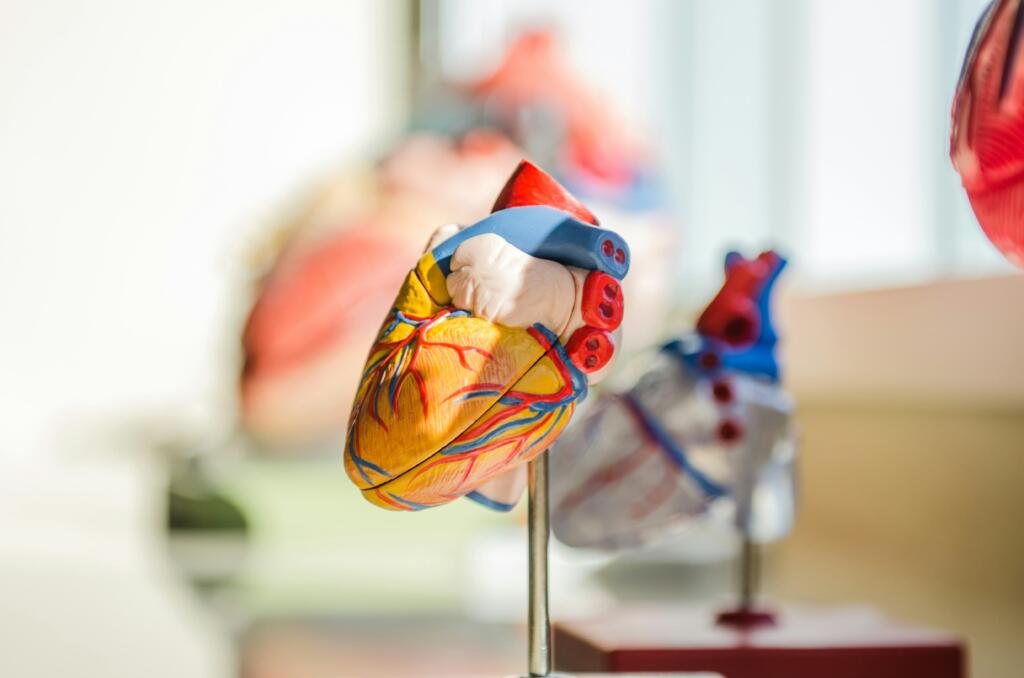According to the Centers for Disease Control and Prevention, a person dies every 34 seconds from cardiovascular disease in the United States. In 2020, around 697,000 people died from heart disease. Furthermore, coronary artery disease (CAD) is the most common type of heart disease, affecting about 20.1 million people. Heart attacks occur every 40 seconds every day.
Unfortunately, many people do not know that cardiovascular disease is preventable, treatable, and even curable if it is diagnosed and caught early enough with a routine heart scan. Too many people do not find out they have this disease until they experience a heart attack.
What is a cardiac calcium score test?

A cardiac calcium score test, also called a heart scan, is a low-level x-ray test that takes images of your heart to determine the amount of calcium deposits and plaque in your heart and the connected arteries. This scan can be used as part of your preventive health care measures to reduce your risks of heart disease since the earliest warning sign is the gradual accumulation of calcified plaque deposits.
Calcium can get stuck inside the artery walls and in the heart, where it can continue to increase in size. As the calcium deposits grow, blood flow through the heart gradually restricts. As a result, the heart has to work harder to pump blood throughout the body. Eventually, as the plaque builds, it can cause a heart attack.
Should I get a cardiac calcium score test?
You should consider getting a heart scan if you have a family history of cardiovascular disease, coronary artery disease, heart disease, high blood pressure, or heart attack. You should also consider getting one for the following reasons:
- You previously smoked or still smoke.
- You have high blood pressure.
- You have high cholesterol.
- You have high triglyceride levels.
- You are overweight or obese.
- You have diabetes.
- You work or live in a high-stress environment.
- You are 40 or older.
- You do not exercise regularly.
Since it takes some time for the plaque to grow to the point where it can trigger a heart attack, the sooner it is detected, the better. Your doctor can use the scan results to:
- Help you better understand any risks you may have.
- Determine whether you have cardiovascular disease.
- Prescribe the proper treatment to reduce the risk of heart disease.
Are you at risk for heart disease? Don’t wait until you have a heart attack. Instead, book a non-invasive heart scan at Preventative Diagnostic Center in Las Vegas today.
Where can I get a cardiac score test?
You can get a cardiac score test at radiology and diagnostic imaging centers. For example, in Las Vegas, you can schedule your heart scan with us at Preventative Diagnostic Center. You do not need a referral from your doctor to get a heart scan and calcium score in Nevada.
Your health insurance may cover a portion or all of the costs of a CT cardiac scoring test. You can also take advantage of our special offer on our heart scan with calcium scoring for only $165.*
*Limited time offer. Price subject to change without notice.
How long does a cardiac calcium score test take?
The total appointment time can take about a half hour to 45 minutes. You should arrive at least 15 minutes before your scheduled appointment to complete any necessary paperwork and get checked in. After you are checked in and called for your scan, you will be asked to remove any clothing above the waist and put on a medical gown.
You should also remove any jewelry, such as earrings and necklaces. Next, you will be asked to lie down and hold still. Then, the technician will ask you to hold your breath for about 10 to 15 seconds as they take images of your heart. The entire cardiac score test should take between 10 and 15 minutes. Afterward, you get dressed and are free to drive yourself home.
When will I get my cardiac score test results?
Your scan will be reviewed by a cardiac specialist, and results are usually available within three days. The results are sent to your primary care physician if your doctor ordered the scan, and you can follow up with them. If you scheduled the scan yourself without a referral, we will set your follow-up appointment at the time of your scan.
What do my calcium cardiac score results mean?
The score results help you determine your cardiovascular disease and heart attack risks. The score is listed as a number based on the amount of calcium and plaque deposits found on your artery walls and in your heart. Scoring is broken down as follows:
- 0: No detectable deposits were found.
- 1 – 10: There were minimal deposits found.
- 11 – 100: There were mild deposits found.
- 101 – 400: There were moderate deposits of plaque found.
- 401 or Higher: There were extensive amounts of plaque found.
Summary
Getting a heart scan to determine your calcium score is worthwhile. The sooner cardiovascular disease is detected, the better, as you and your doctor can take steps to treat and potentially cure the disease.
Schedule your cardiac calcium score test in Las Vegas at Preventative Diagnostic Center today
Sources:
Heart Disease Facts. (2022).
Huzar, T. (2020). Atherosclerosis Rapidly Develops Between the Ages 40 to 50, Research Shows.Strategies to Prevent Heart Disease. (2022).
